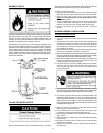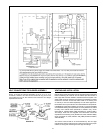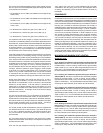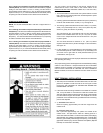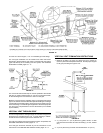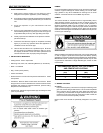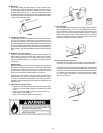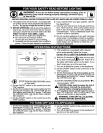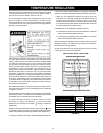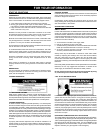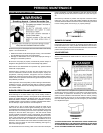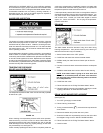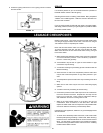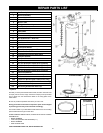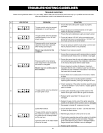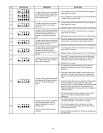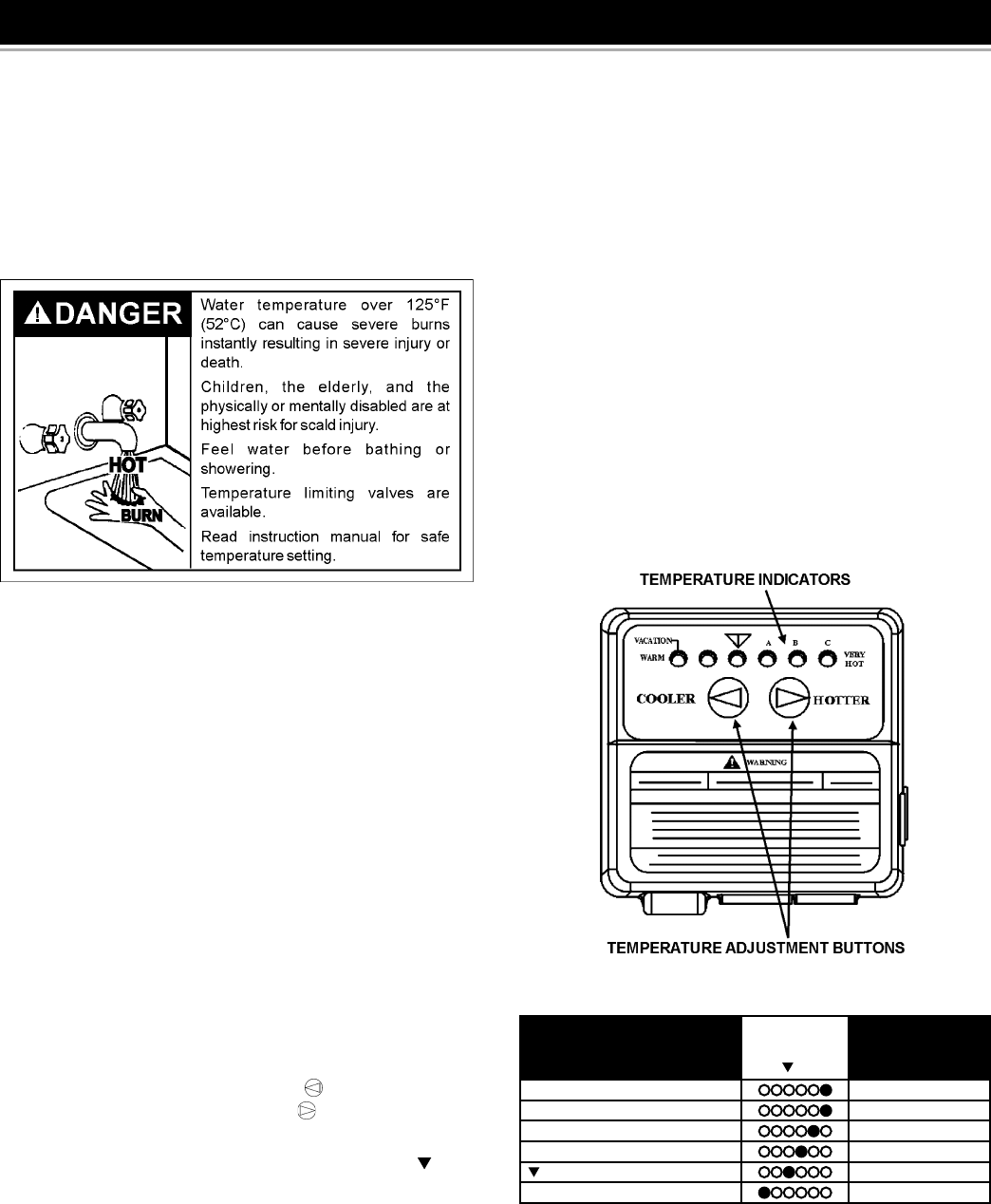
22
Due to the nature of the typical gas water heater, the water temperature
in certain situations may vary up to 30°F (16.7°C) higher or lower at
the point of use such as, bathtubs, showers, sink, etc.
It is recommended that lower water temperatures be used to avoid
the risk of scalding. It is further recommended, in all cases, that the
water temperature be set for the lowest temperature which satisfi es
your hot water needs. This will also provide the most energy effi cient
operation of the water heater.
HOT WATER CAN SCALD: Water heaters are intended to produce
hot water. Water heated to a temperature which will satisfy space
heating, clothes washing, dish washing, and other sanitizing needs
can scald and permanently injure you upon contact. Some people
are more likely to be permanently injured by hot water than others.
These include the elderly, children, the infi rm, or physically/mentally
handicapped. If anyone using hot water in your home fi ts into one of
these groups or if there is a local code or state law requiring a certain
temperature water at the hot water tap, then you must take special
precautions. In addition to using the lowest possible temperature
setting that satisfi es your hot water needs, a means such as a mixing
valve, should be used at the hot water taps used by these people or
at the water heater. Mixing valves are available at plumbing supply
or hardware stores, see Figure 2. Follow manufacturer’s instructions
for installation of the valves. Before changing the factory setting on
the thermostat see Figure 19.
Never allow small children to use a hot water tap, or to draw their own
bath water. Never leave a child or handicapped person unattended
in a bathtub or shower.
The water heater should be located in an area where the general public
does not have access. If a suitable area is not available, a cover should
be installed over the thermostat to prevent tampering.
The water temperature setting was factory set at the lowest
temperature; Pressing the “COOLER” button decreases
temperature and pressing the “HOTTER”
button increases the
temperature.
Setting the water heater temperature at 120°F (49°C) (Approx. “
” mark
on temperature setting of the gas control valve) will reduce the risks of
scalds. Some states require settings at specifi c lower temperatures.
To avoid any unintentional changes in water temperature settings, the
TEMPERATURE REGULATION
control has a tamper resistant feature for changing the temperature
setting. To change the temperature setting follow these instructions:
1. “Wake Up” the temperature indicators by holding down both
“COOLER” and “HOTTER” temperature adjustment buttons at
the same time for one second, see Figure 19. One or two of the
temperature indicators will light up. These indicators will only remain
on for 30 seconds if no further buttons are pressed. After 30 seconds
the control will go back to “Sleep” mode.
2. Release both of the temperature adjustment buttons.
a. To decrease the temperature press and release the “COOLER”
button until the desired setting is reached.
b. To increase the temperature press and release the “HOTTER”
button until the desired setting is reached.
NOTE: Holding down the button will not continue to lower or raise the
temperature setting. The button must be pressed and released for
each temperature change desired.
Should overheating occur or the gas supply fail to shut off, turn off the
manual gas control valve to the appliance.
GAS CONTROL VALVE - FRONT VIEW
Time to Produce
FIGURE 19.
Temperature Setting
Display
A B C
Time to Produce
2nd and 3rd Degree
Burns on Adult Skin
C-Flashing = approx. 160°F (71°C)
About 1/2 seconds
C = approx. 150°F (66°C)
About 1-1/2 seconds
B = approx. 140°F (60°C)
Less than 5 seconds
A = approx. 130°F (54°C)
About 30 seconds
= approx. 120°F (49°C) More than 5 minutes
WARM = approx. 80°F (27°C)
- - - - - - - - - - - - -



